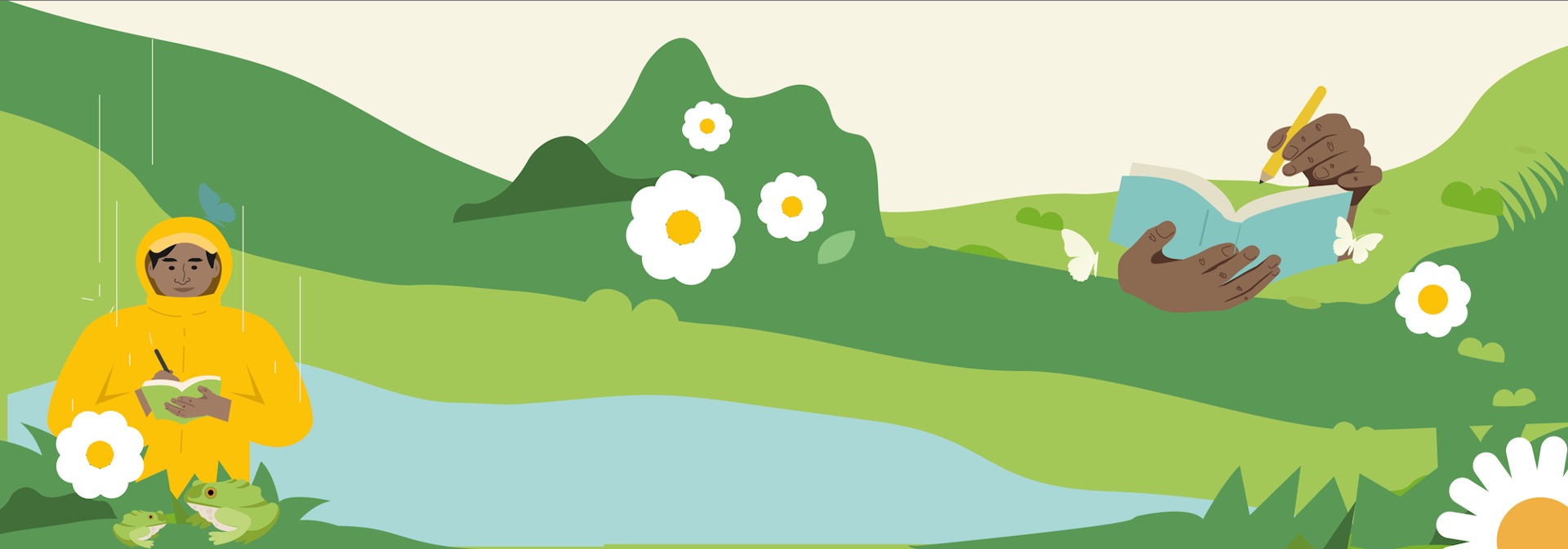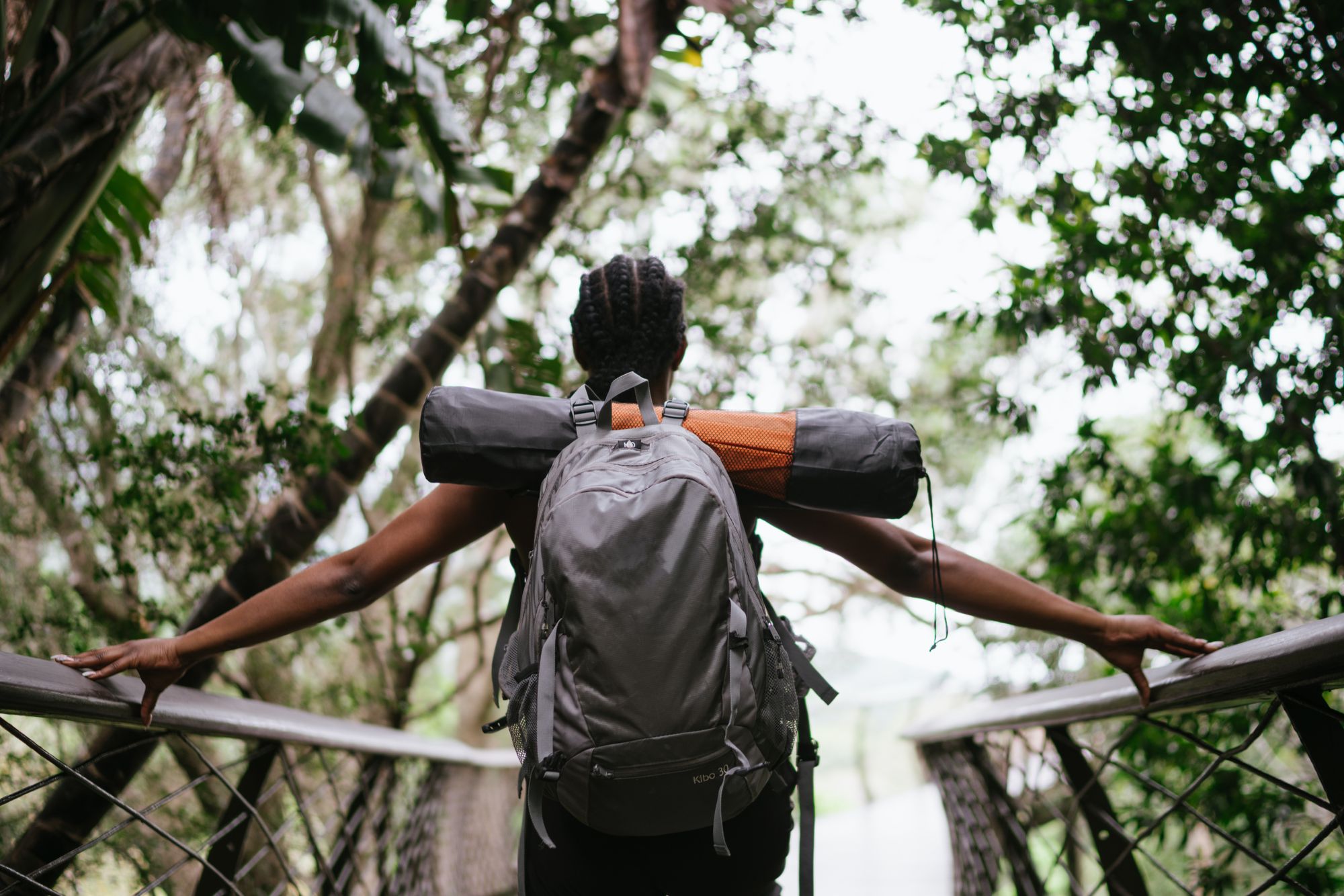Discover the joy of hiking and its mental health benefits
updated on Apr 1, 2022

Walking in nature is great for your mental and physical health. So, get your boots on and step up, because here’s our beginner’s guide
Whether strolling up a local hill or attempting the Three Peaks Challenge, hiking is an activity with a range of benefits. According to mental health charity Mind, spending time exercising outdoors in nature can benefit our mental health by improving our mood and reducing feelings of stress. And it’s good for our physical health, too: brisk walking counts towards the NHS’s recommended 150 minutes of exercise a week.
We’re lucky in the UK to have great places to experience, with national parks across the country, and a range of terrain to explore. Here, we look at the joy of hiking and how you can get involved.
Get into hiking
My love of hiking started by walking hills and mountains – known as ‘fells’ – in the Lake District in northern England. There’s an immense sense of achievement at reaching a summit after hours of walking, and a sense of wonder as you take in the views.
“Hiking can be a really beautiful sensory experience that can awaken you,” says counsellor Karen Schumann. “As you gain more strength and confidence in hiking, this can really help you to feel more capable, more independent, and ready to take on whatever the world throws at you.”
Our physical health can also benefit. “Hiking can really help with your aerobic fitness and endurance,” explains Karen. “It can also improve markers associated with cardiovascular health – like blood pressure, blood sugar levels and cholesterol.” It can help improve our balance and build muscle, too.
The idea of hiking for our wellbeing is growing in popularity. Mountains for the Mind is a campaign, launched by Trail magazine, to promote the benefits of being outside for better mental health. “The idea started when we realised that for many of our readers, walking in the mountains was not just a hobby, it was having a profound effect on their lives and their mental health,” explains Jenna Maryniak, on behalf of Mountains for the Mind.
The campaign provides guidance and encouragement for those wanting to give hiking a try – from a friendly Facebook group to speaking with likeminded people, to fundraising challenges to raise money for its partner, the charity Mind. It works with the organisation Blackdog Outdoors to offer free guided hill walks to promote the benefits of spending time outdoors for better mental health. These walks take place across the country and are a great way to try hiking for those who are unsure about giving it a go.
“There is something about being outdoors in nature that provides a unique perspective. Standing on top of a mountain, you are a tiny speck on the landscape,” explains Jenna. “The beauty, the vastness, the savagery of the rock and the weather, somehow makes all your worries seem smaller and much more manageable. It’s also the sense of achievement too, climbing a hill or mountain is not easy – and to make it to the top is a feeling of exhilaration and achievement like no other, and helps boost a sense of wellbeing and self-esteem.”
Whether it’s a woodland walk or a mountain trek, there are many beautiful places to go hiking, where experiencing nature can support our wellbeing. “Spending time in nature can really make you stand still and take stock of your surroundings, bringing the mind to the present moment and leaving everything else behind,” says counsellor Karen. “It can be very grounding to feel connected to nature when perhaps you’re feeling disconnected from everything else.”

Finding inspiration in the outdoors
I always find going for a hike kindles my creativity – nothing takes away my writer’s block better than a mountain. Writers and artists have been inspired by walks in nature for centuries. One of the most famous is the Romantic poet William Wordsworth, whose work drew on the Lake District landscape he regularly wandered – I love reading his poetry as a way to escape into nature. And published this year, the nature memoir I Belong Here sees author Anita Sethi journey through the Pennines, exploring her sense of belonging and connection to the UK landscape after being a victim of racism.
If you enjoy writing, try taking a notebook and pen with you on a hike. When you stop for a breather, jot down any thoughts that come to you – perhaps the taste of the air, the landscape you see unfurling before you, or how you feel. Photography is of course another way of capturing our walks. Or how about bringing a sketchbook and finding a spot to do some drawing? This can all add to the enjoyment of hiking, and help you take a mindful approach to your experience.
Planning your hike
Researching hiking routes can be enjoyable, and thankfully there’s lots of inspiration out there. Guidebooks are a good starting point and can be lovely to browse through. There are also lots of walking guides available online: try Googling the place you want to walk and the words ‘hikes’ or ‘walking routes’. I love walklakes.co.uk for looking up Lake District hiking trails. Many route guides include useful details, including the estimated length of time, distance, and difficulty of the walk.
The Ramblers website is another great resource for finding walks. You can search using your postcode and it’ll bring up routes nearby. They also have organised walks across the country that you can join, which are perfect if you’d like to build your confidence with hiking, as well as meet new people. Find out more at ramblers.org.uk.
Miles Without Stiles are routes suitable for wheelchair users and others with reduced mobility. Many national parks, including the Peak District, Yorkshire Dales, and South Downs, have these guides available online, so everyone has the opportunity to get out and enjoy the countryside.
What you’ll need
A compass and a map are essential, along with plenty of water and some food.
Dress appropriately:sturdy shoes, preferably walking boots that offer ankle support, are vital. A waterproof jacket is worthwhile, too, as even if the forecast looks good, the weather can be changeable. Bring a fully charged phone, but don’t rely on it for navigation in case signal goes.
Tell someone where you’re going and what time you expect to be back by, and let them know once you’ve returned. It’s best to hike with other people so you can look out for one another – and walking with friends is a fun way to spend time together.
So, what should you do if you’d like to get into hiking but are unsure about venturing out? “Start off with easy walks within your comfort zone, and as you start to build fitness and confidence you can start to look to the hills and mountains,” recommends Jenna. Walking with someone else can help you feel more confident, too.
“Most importantly, set your own boundaries and know your limitations,” advises Karen. “Don’t try to take on too much or compare yourself to others. Trust that you are on your own journey and that this is about you improving your mental and physical health – and enjoy it!”
Karen Schumann is a qualified person-centred counsellor. Find out more by visiting counselling-directory.org.uk

